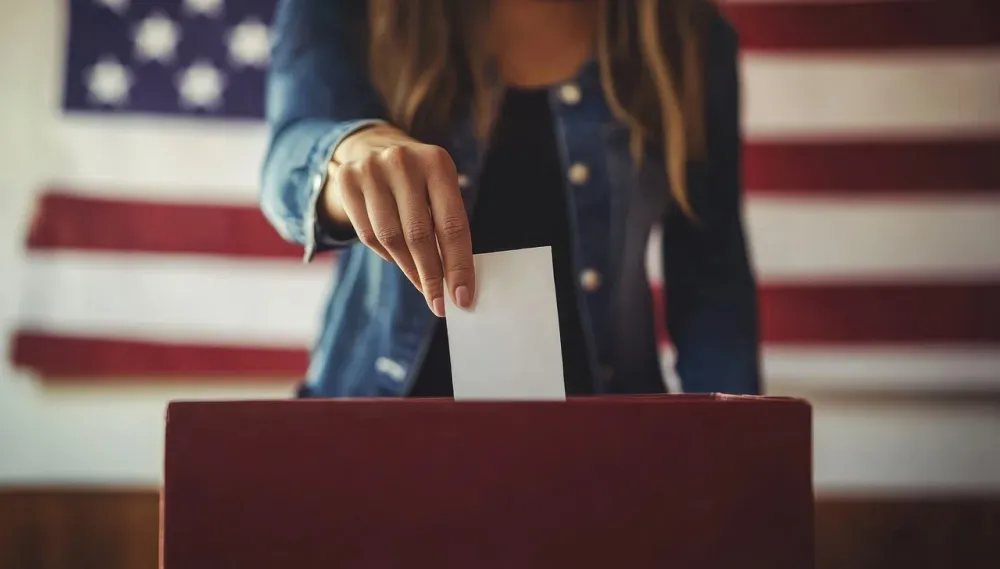How U.S. Elections Impact Switzerland: A Global Perspective
How U.S. Elections Impact Switzerland: A Global Perspective
When Americans cast their votes, the effects resonate far beyond U.S. borders, even reaching Switzerland, a small but highly interconnected country. The outcome of U.S. elections can influence Swiss trade, diplomacy, and global cooperation, key pillars of the country's prosperity and neutrality. Whether the White House is occupied by Joe Biden, Donald Trump with JD Vance, or Kamala Harris with Tim Walz, Switzerland must adapt to the shifts in U.S. leadership and its global impact.
Economic Implications: Tariffs, Taxes, and Investments
Switzerland's financial system is deeply tied to global trade, with the United States being one of its most significant partners. Changes in U.S. trade policy, tax agreements, and regulatory frameworks after elections can ripple through Swiss businesses and investment portfolios.
Tariff Policies: If a U.S. administration adopts a protectionist stance, as seen during Donald Trump’s tenure, it could lead to tariffs and trade restrictions that hurt Swiss exports. Industries like pharmaceuticals and luxury watches, which are vital to the Swiss economy, could face increased costs or hurdles when exporting to the U.S. However, under a Democratic administration, such as one led by President Joe Biden or a Kamala Harris-Tim Walz ticket, we might see a focus on stable, multilateral trade agreements. This could ease pressure on Swiss exports and foster smoother international trade.
Tax Treaties: The U.S.-Swiss Double Taxation Treaty is essential for encouraging cross-border investments, preventing double taxation for businesses and individuals. Shifts in U.S. leadership could bring changes to this treaty, depending on whether protectionism or global cooperation becomes the priority. Both the current Biden administration and a potential Kamala Harris government are likely to uphold the value of multilateral cooperation, while a Trump-Vance administration might lean more towards economic nationalism, which could lead to a renegotiation of tax terms.
Investment Climate: The political stability and economic policies of the U.S. can directly affect foreign direct investment (FDI) between the two countries. A more nationalistic U.S. government, such as a potential Trump-Vance administration, might create an unpredictable investment environment, making Swiss companies cautious about expanding into the U.S. market. On the other hand, a globally engaged government—whether under Joe Biden or Kamala Harris—could foster a more welcoming atmosphere for international investments, benefitting Swiss firms.
Political Dynamics: Multilateralism vs. Isolationism
As a neutral nation, Switzerland closely monitors international political developments, particularly in major powers like the U.S. Swiss diplomacy thrives when the U.S. maintains strong multilateral relationships and supports global institutions.
Multilateral Engagement: Under Joe Biden, the U.S. has re-entered the Paris Climate Agreement and reaffirmed its commitment to NATO, signaling a return to multilateral cooperation. A similar approach could be expected from a Kamala Harris administration. This kind of engagement aligns well with Switzerland’s foreign policy objectives and strengthens the international institutions where Switzerland plays a significant role. In contrast, a more isolationist approach, such as the one likely under Donald Trump and JD Vance, could weaken these institutions, indirectly affecting Switzerland’s diplomatic efforts.
Diplomatic Relations: Switzerland often serves as a mediator in international disputes, relying on global stability to maintain its role. A U.S. government that withdraws from international agreements or destabilizes alliances could challenge Switzerland’s neutrality and its diplomatic role. Conversely, a leadership team like Kamala Harris and Tim Walz, which values international diplomacy, could enhance Switzerland's standing on the global stage.
Social and Cultural Exchange: Education, Science, and Technology
The relationship between Switzerland and the U.S. extends beyond economics and politics, touching on education, science, and technology.
Academic Collaboration: Swiss universities, renowned for cutting-edge research, collaborate extensively with U.S. institutions. The free movement of researchers, students, and academic funding can be affected by U.S. immigration and visa policies, which often change with each administration. A Trump-Vance government might enforce stricter immigration policies, limiting these collaborations, while a Harris-Walz administration would likely promote more open policies, encouraging greater exchange of knowledge and talent.
Technological Innovation: Both the U.S. and Switzerland are leaders in technological innovation. U.S. elections, especially when candidates emphasize tech regulation, digital privacy, or AI development, can have significant implications for Swiss tech companies operating in U.S. markets. The Biden administration’s current focus on tech regulation is likely to continue under Kamala Harris. Meanwhile, Donald Trump’s more deregulated approach might offer opportunities, but also introduce uncertainties in cybersecurity and intellectual property rights.
Switzerland’s Neutrality and the Global Stage
Switzerland’s neutrality allows it to navigate geopolitical shifts arising from U.S. election outcomes. However, neutrality does not equate to indifference. Swiss diplomats and policymakers must remain agile, adapting to the global order shaped by each U.S. election result.
Neutrality in a Changing World: A more isolationist U.S., led by Trump and JD Vance, could lead to a fragmented world order, pressuring Switzerland to take more definitive stances on global issues. On the other hand, a Biden administration, or potentially Harris and Walz, would likely continue to engage globally, allowing Switzerland to maintain its traditional role as a mediator without compromising its neutral status.
Conclusion
Although Switzerland may seem distant from the U.S., the ripple effects of American elections are keenly felt across Swiss trade, diplomacy, and culture. Whether it's Donald Trump and JD Vance, Kamala Harris and Tim Walz, or Joe Biden leading the U.S., Switzerland must be prepared to respond to both the challenges and opportunities that arise from changes in U.S. leadership.



